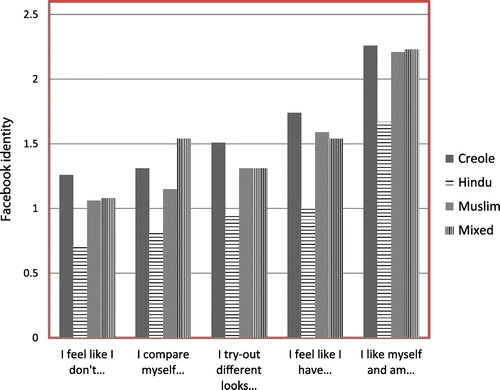Figures & data
Figure 1. “How often do you visit Facebook?” as a function of Gender (rating 2 represents “several times a day”, and rating 3 represents “once or twice a week”).
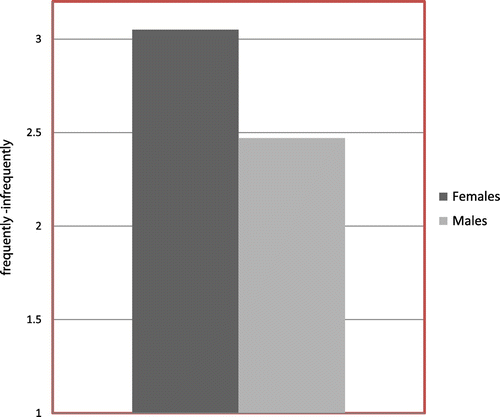
Figure 2a. Mean Facebook identity ratings as a function of Gender on scales: Who I want to be is often reflected in the things I do on my Facebook profile (e.g. status posts, comments, photos, etc.); Who I am online is similar to who I am offline.
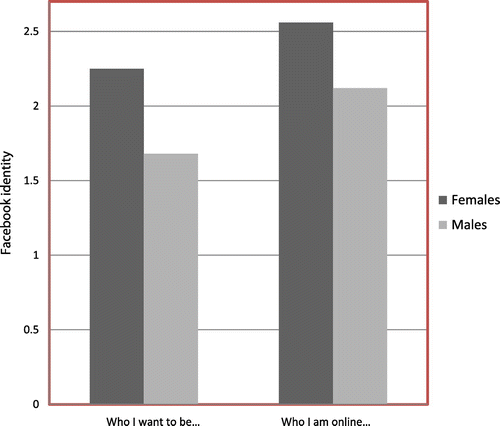
Figure 2b. Mean Facebook identity ratings as a function of Gender on scales: I post information about myself on my Facebook profile that is not true; I try to impress others with the photos I post of myself on my Facebook profile; On Facebook I can try-out many aspects of who I am much more than I can in real life; I don’t have a clear idea of what I want to be so I use Facebook to figure it out; I try-out different looks or attitudes on Facebook to see how people react; I am a completely different person online than I am offline; I change my photos on my Facebook profile to show people the different aspects of who I am; I feel like I don’t really know what I am all about or who I am so I use Facebook to try-out different things that can help me figure it out; I compare myself to others on Facebook; Sometimes I feel like I keep up a front on Facebook; I only show the aspects of myself on Facebook that I know people would like; I post things on Facebook to show aspects of who I want to be; I feel like I have many sides myself and I show it on my Facebook profile.
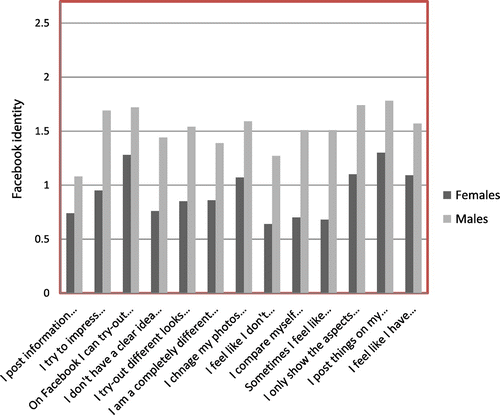
Figure 3. “How often do you visit Facebook?” as a function of Ethnicity (rating 2 represents “several times a day”, and rating 3 represents “once or twice a week”).
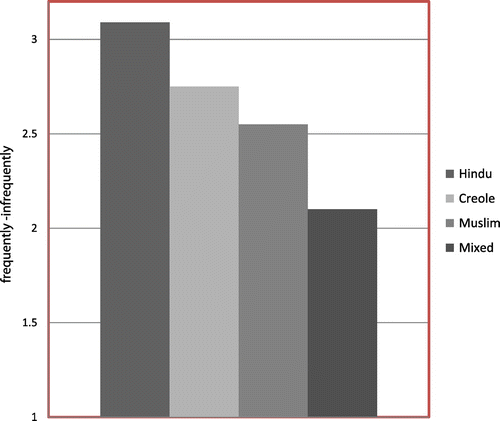
Figure 4a. Mean Facebook identity ratings as a function of Ethnicity on scales: Who I want to be is often reflected in the things I do on my Facebook profile (e.g. status posts, comments, photos, etc.); I post information about myself on my Facebook profile that is not true; On Facebook I can try-out many aspects of who I am much more than I can in real life; I post things on Facebook to show aspects of who I want to be; I feel like using Facebook has allowed me to question who I am whereas before I didn’t really care; I change my photos on my Facebook profile to show people the different aspects of who I am; Sometimes I feel like I keep up a front on Facebook.
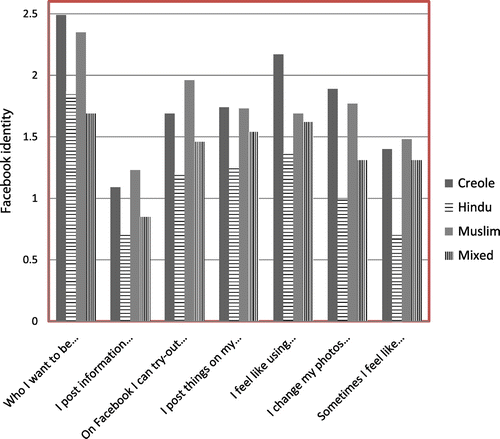
Figure 4b. Mean Facebook identity ratings as a function of Ethnicity on scales: I feel like I don’t really know what I am all about or who I am so I use Facebook to try-out different things that can help me figure it out; I compare myself to others on Facebook; I try-out different looks or attitudes on Facebook to see how people react; I feel like I have many sides myself and I show it on my Facebook profile; I like myself and am proud of what I stand for and I show it on my Facebook profile.
